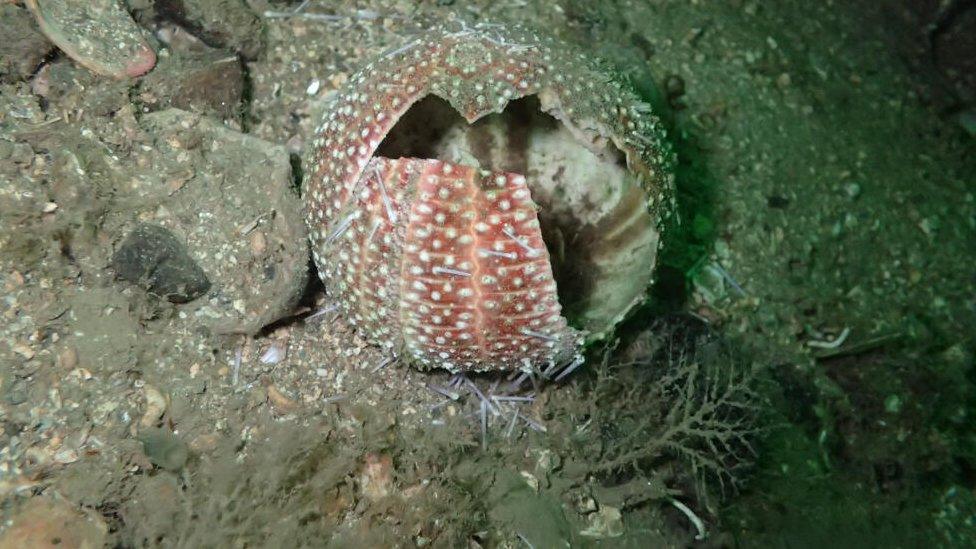Dredger damaged Loch Carron reef secures protected status
- Published
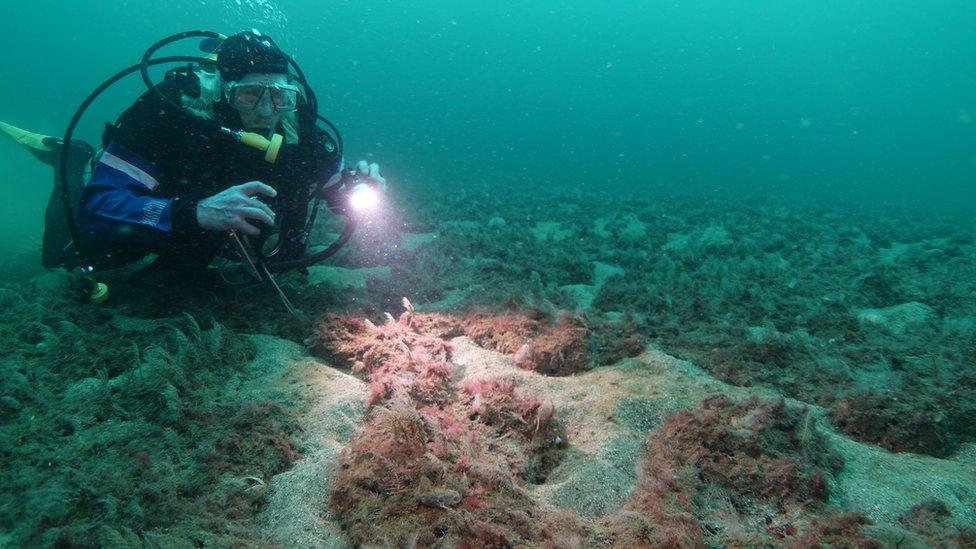
Recreational divers exposed the damage in Loch Carron after the 2017 incident
A fragile flame shell reef which was severely damaged by scallop dredging on Scotland's north west coast has been granted permanent protection.
Ministers had issued a temporary order banning mobile fishing on Loch Carron in Wester Ross after the 2017 incident.
Divers who visited the reef, which is a nursery ground for scallops, found the area had been "intensively" dredged.
But it now officially has Marine Protected Area (MPA) status which safeguards 23 sq km of the sea loch.
'Unsung heroes'
Phil Taylor, head of policy at environmental group Open Seas, described the initial devastation as a "wake-up call".
He added: "These divers are unsung heroes - by showing the damage that is being done to our seabed, they have raised huge political and public awareness of the problem.
"However, Loch Carron is just one small area, and over the past few decades the same degradation has happened elsewhere in our seas.
"We urgently need to regenerate all of our coastal seas - safeguarding seabed habitats will deliver a sustainable long term future for our rural economy and communities."
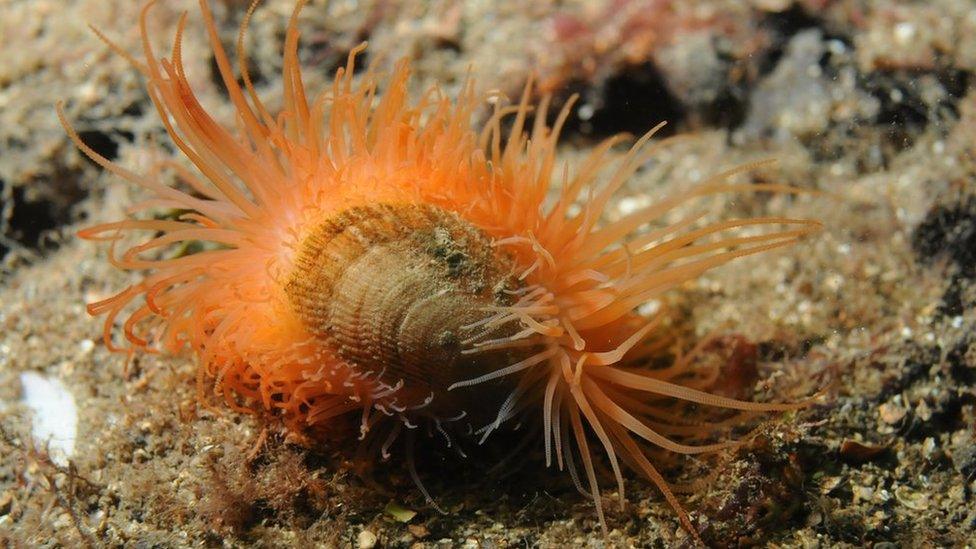
Loch Carron is home to millions of flame shells
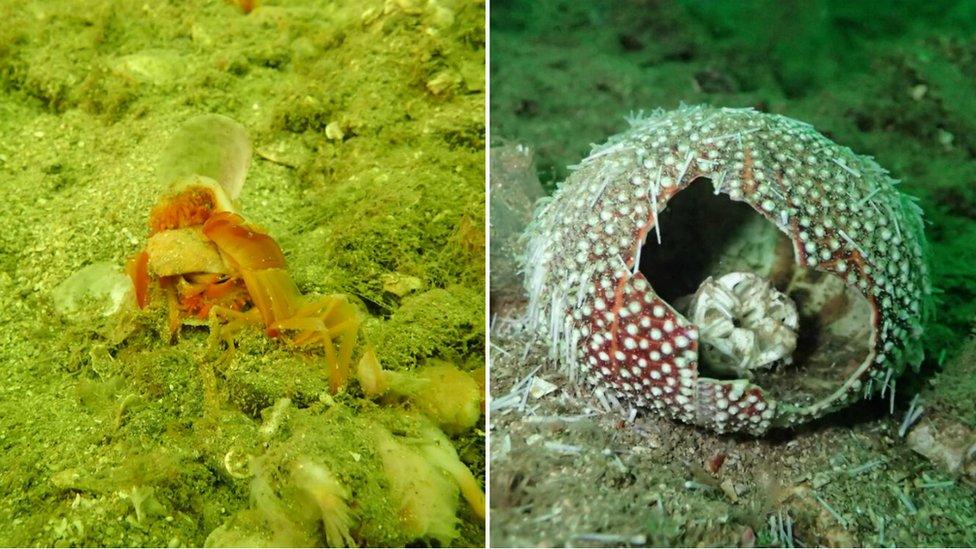
Images of the damaged reef captured two years ago
The MPA for Loch Carron, which comes into force on Sunday, means fishermen operating trawlers or dredging boats will not be able to fish.
It will mirror the area covered by existing emergency closure, with the exception of Plockton harbour where there is no evidence of a reef.
Open Seas has been calling for dredging to be banned around Scotland's coast because of the damaging impact it can have on the sea bed.
But fishing organisations have argued the move is unnecessary and that existing protections are enough.
Loch Carron is home to the world's largest-known flame shell bed with an estimate 250 million brightly-coloured molluscs.
The scallop dredger which caused the damage was not operating illegally since the area had no protected designation.
But it left the sea bed littered with broken shells and led to calls for dredging to be banned completely.
- Published29 March 2019

- Published21 March 2018
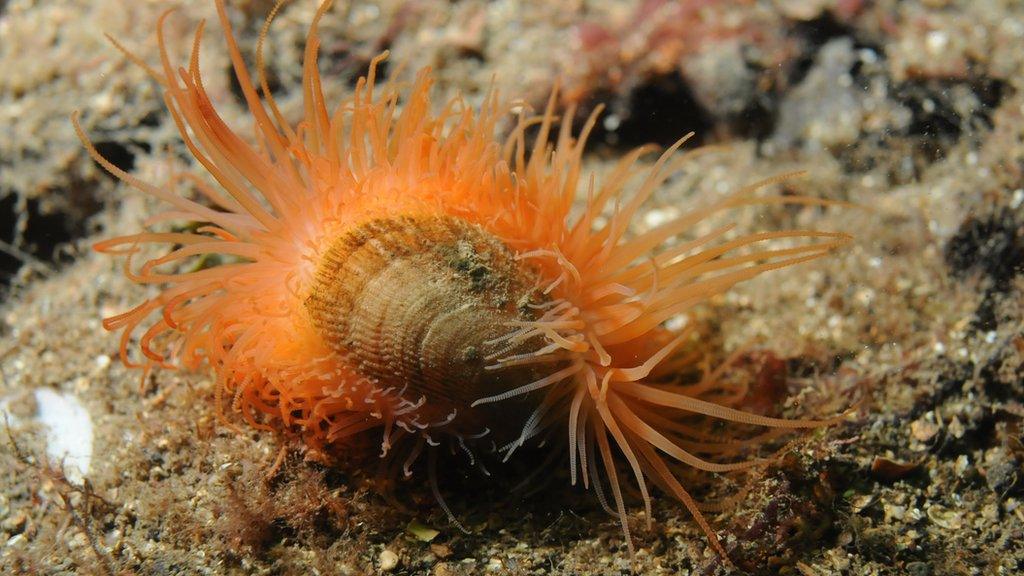
- Published14 November 2018
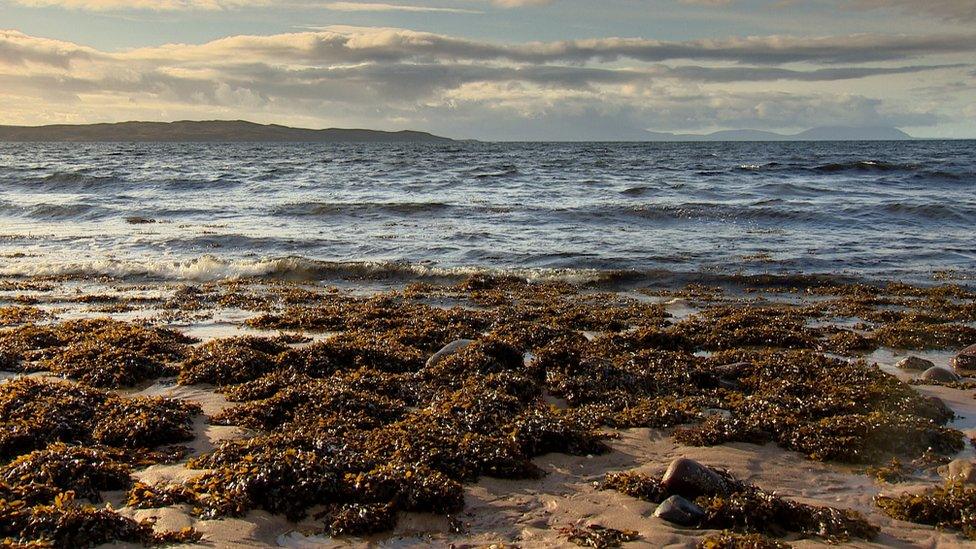
- Published24 April 2017
